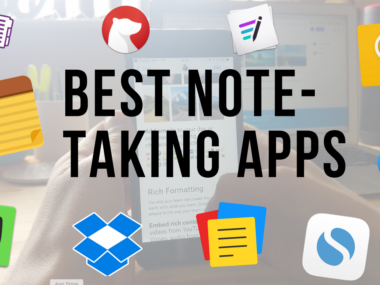How a Free Data Analytics Bootcamp Doubled My Salary in 6 Months
Outline
- Introduction
1.1 A Personal Story of Transformation
1.2 Why This Story Matters to You - The Wake‑Up Call: Why I Needed a Career Shift
2.1 Feeling Stuck in My Old Job
2.2 Realising My True Interests Lay Elsewhere
2.3 Battling Analysis Paralysis - Why I Chose Data Analytics
3.1 The Booming Demand for Data Skills
3.2 Impressive Salary Prospects
3.3 The Flexibility and Versatility of the Field
3.4 Geographic Independence - Understanding What a Data Analytics Bootcamp Offers
4.1 What Is a Data Analytics Bootcamp?
4.2 Key Skills Taught (Excel, SQL, Python, Tableau)
4.3 Timeline and Intensity of Bootcamps
4.4 Soft Skills Baked Into the Syllabus - Researching the Best Data Analytics Bootcamp
5.1 Comparing Curriculums
5.2 Checking Instructor Experience
5.3 Alumni Success Stories
5.4 My Top Criteria
5.5 Financial Aid and Scholarships
5.6 Community Ratings and Reddit Deep Dives - My Data Analytics Bootcamp Journey Begins
6.1 Enrolling and Setting Expectations
6.2 Week 1: Orientation and Mindset Shift
6.3 Setting SMART Goals
6.4 Impostor Syndrome Battles - Bootcamp Curriculum Breakdown
7.1 Data Wrangling and Cleaning
7.2 Data Visualisation
7.3 Predictive Analytics and Machine‑Learning Basics
7.4 Capstone Projects
7.5 Bonus Module: Cloud Analytics
7.6 Statistics Refresher Boot - Toolkit Deep Dive: SQL, Python, and Tableau in Action
8.1 SQL—Speaking the Language of Databases
8.2 Python—Automating the Boring Stuff and Then Some
8.3 Tableau—Telling Visual Stories
8.4 Integrating the Stack - Hands‑On Learning and Real‑World Projects
9.1 Working with Real Datasets
9.2 Presenting to Mock Employers
9.3 Peer Reviews and Feedback
9.4 Iterating Through Agile Sprints - Building a Portfolio That Gets Noticed
10.1 Creating My GitHub and Personal Site
10.2 Showcasing Projects That Solved Real Problems
10.3 Leveraging Social Proof
10.4 How It Helped in Interviews - Balancing Bootcamp with Life
11.1 Managing Work, Family, and Studies
11.2 Tips for Staying Sane and Productive
11.3 Mental Health Check‑Ins
11.4 Energy Management, Not Time Management - Job Hunting with a New Skill Set
12.1 Resume Transformation
12.2 Using LinkedIn and Job Boards
12.3 Practising for Technical Interviews
12.4 Targeted Cover Letters
12.5 The Hidden Job Market - Landing the New Job
13.1 How I Nailed My Interview
13.2 The Offer and Salary Reveal
13.3 Negotiating Like a Pro
13.4 Starting My New Role
13.5 Onboarding and Quick Wins - Salary Math: Crunching the Return on Investment
14.1 Pre‑Bootcamp Earnings
14.2 Post‑Bootcamp Compensation
14.3 Calculating Payback Period
14.4 Opportunity Cost Considerations
14.5 Long‑Term Projections
14.6 Intangible Returns
14.7 Looking Ahead - How My Life Changed After the Bootcamp
15.1 Financial Freedom
15.2 Confidence and Career Clarity
15.3 A Seat at the Decision‑Making Table
15.4 Continuous Learning Loop
15.5 Paying It Forward - Would I Recommend a Data Analytics Bootcamp?
16.1 Pros and Cons
16.2 Who It’s Best Suited For
16.3 What I’d Do Differently
16.4 Bootcamp vs. Degree: A Cost‑Benefit Snapshot - My 12‑Week Study Plan—Week‑by‑Week Breakdown
17.1 Why a Structured Calendar Matters
17.2 Flex Days and Buffer Zones
17.3 Peer Accountability Loops
17.4 Micro‑Reflections - Conclusion
- FAQs
Introduction
A Personal Story of Transformation
I still remember the Tuesday afternoon when my banking app buzzed and displayed a figure that felt like a typo—double what I’d earned just half a year earlier. Six months before, I was stuck in an admin role with no upward path and a pay-slip that barely covered life’s basics. What changed? Enrolling in a Data Analytics Bootcamp that compressed years of theory into an intense, practical sprint and rewired how I think, work, and negotiate.
Why This Story Matters to You
Maybe you’re skimming this because you feel boxed in by a slow‑moving career. Perhaps you’re skeptical about whether a Data Analytics Bootcamp can really overhaul your life or you’re simply curious about the hype. I’m laying bare the entire journey—from that first “I need to change” realization to the precise steps that landed a lucrative offer—so you can decide if this path fits your own ambitions.
The Wake‑Up Call: Why I Needed a Career Shift
Feeling Stuck in My Old Job
For five years I worked as a customer‑service coordinator in a logistics firm. Every day felt like déjà‑vu: answer emails, track parcels, apologize for delays, repeat. When I was passed over for a three‑percent raise that didn’t even match inflation, I knew the hamster wheel had to stop.
Realizing My True Interests Lay Elsewhere
I’ve always loved numbers. In college, statistics was my secret joy—spotting patterns where others saw chaos. One night, scrolling through YouTube, I stumbled on a “day in the life” vlog of a junior data analyst. Their routine—morning SQL, afternoon storytelling to execs—lit me up. That spark became a flame I couldn’t ignore.
Battling Analysis Paralysis
Overwhelmed by choices—degrees, MOOCs, self‑study—I built a simple scoring matrix comparing cost, duration, and ROI. An immersive Data Analytics Bootcamp scored highest on impact and moderate on effort. Decision made.
Why I Chose Data Analytics
The Booming Demand for Data Skills
Companies drown in information but starve for insight. A quick LinkedIn search surfaced thousands of analyst roles, many tagged “urgent hire.” The majority required exactly what a Data Analytics Bootcamp teaches: SQL, Python, and data storytelling.
Impressive Salary Prospects
Glassdoor pegs entry‑level analyst pay in the U.S. around $68 k; Nigeria’s tech sector ranges ₦6 m–₦12 m. Senior analysts easily cross six figures. Alumni forums echoed the same refrain: a Data Analytics Bootcamp unlocked new pay scales fast.
The Flexibility and Versatility of the Field
Data analytics transcends industry silos—healthcare, fintech, sports, renewable energy. Master core concepts and you can pivot anywhere.
Geographic Independence
Remote‑first hiring means a Lagos‑based analyst can work for a London firm. Completing a reputable Data Analytics Bootcamp positioned me for global opportunities without relocating.
Understanding What a Data Analytics Bootcamp Offers
What Is a Data Analytics Bootcamp?
Think of it as career acceleration on rocket fuel: 12–24 weeks of mentor‑led, project‑based learning designed to mirror real analytics teams.
Key Skills Taught
My programme layered Excel, SQL, Python’s pandas, Tableau, and introductory machine learning. Recruiters saw a versatile toolkit, not a one‑trick pony.
Timeline and Intensity of Bootcamps
Full‑time tracks demand 40 hours a week; part‑time about 20. I chose part‑time to keep income flowing—and still logged many late nights.
Soft Skills Baked Into the Syllabus
Weekly workshops on stakeholder communication, ethics, and presentation storytelling separated good analysts from great ones.
Researching the Best Data Analytics Bootcamp
Comparing Curriculums
Spreadsheet in hand, I compared five programmes on depth, project count, and job support. Anything without advanced SQL window functions was out.
Checking Instructor Experience
I stalked instructors on LinkedIn. Only those who’d shipped dashboards or led analytics teams made my shortlist.
Alumni Success Stories
Virtual open houses let grads present capstones and share salary bumps—proof over promises.
My Top Criteria
I needed depth, portfolio focus, lifelong career services, and instalment plans. CareerFoundry ticked every box.
Financial Aid and Scholarships
A needs‑based grant shaved $1 500 off tuition. Many sponsors cover up to 60 %—worth exploring.
Community Ratings and Reddit Deep Dives
Reddit threads were brutally honest; they saved me from cheaper programmes with sketchy job support.
My Data Analytics Bootcamp Journey Begins
Enrolling and Setting Expectations
Paying the deposit felt like strapping into a roller‑coaster. A Slack channel buzzing with “I quit my job today!” messages provided instant accountability.
Week 1: Orientation and Mindset Shift
Our first assignment: write a “North Star statement.” Mine? “Double my salary, gain location freedom, influence business decisions.” I stuck it above my desk.
Setting SMART Goals
Breaking that North Star into specific, measurable steps—publish two project articles, attend five webinars—kept momentum high.
Impostor Syndrome Battles
A coach urged us to keep a “brag document” logging every solved bug. Rereading it on rough nights was a morale lifesaver.
Bootcamp Curriculum Breakdown
Data Wrangling and Cleaning
Garbage in, garbage out. We tamed messy CSVs with pandas and learned to love regular expressions.
Hands‑On Tool: Jupyter Notebooks
Combining markdown and executable code made storytelling seamless.
Data Visualisation
Tableau dashboards, animated heatmaps, and design critiques taught us to make insights pop.
Predictive Analytics and Machine‑Learning Basics
Logistic regression and random forests may be humble compared to deep learning, yet they drove meaningful business wins in capstone projects.
Capstone Projects
My team built a dashboard predicting solar‑battery replacements for a local installer—executives planned real‑world rollout.
Bonus Module: Cloud Analytics
We dipped into Snowflake, BigQuery, and Redshift—writing SQL that scales.
Statistics Refresher Boot
Bayes’ theorem, sampling, p‑values: critical guardrails before model building.
Toolkit Deep Dive: SQL, Python, and Tableau in Action
SQL—Speaking the Language of Databases
From SELECT basics to 150 million‑row taxi datasets, writing efficient queries felt like crossword puzzles with payoffs.
Python—Automating the Boring Stuff and Then Some
Pandas wrangling, NumPy maths, scikit‑learn models. Watching a random forest hit 92 % accuracy rivalled any gaming high score.
Tableau—Telling Visual Stories
Colour, hierarchy, and whitespace sway executives as much as p‑values. Live dashboards let stakeholders explore answers themselves.
Integrating the Stack
Pull with SQL, transform via Python, visualise in Tableau—the full‑pipeline mastery hiring managers crave.
Hands‑On Learning and Real‑World Projects
Working with Real Datasets
We partnered with nonprofits and startups, analysing everything from micro‑loans to click‑streams.
Presenting to Mock Employers
A mid‑programme “demo day” sharpened my pitch; real interviews later felt like reruns.
Peer Reviews and Feedback
Agile sprints, pull requests, and constructive critique built meticulous habits.
Iterating Through Agile Sprints
Two‑week loops mimicked Silicon Valley workflows, teaching rapid iteration.
Building a Portfolio That Gets Noticed
Creating My GitHub and Personal Site
Dark‑mode toggles, embedded dashboards, commit history—recruiters loved the transparency.
Showcasing Projects That Solved Real Problems
“Reduced delivery‑route inefficiencies by 9 %” beats “played with iris.csv” every time.
Leveraging Social Proof
Twitter and LinkedIn posts tagged #DataAnalyticsBootcamp drew alumni engagement and recruiter eyeballs.
How It Helped in Interviews
Interviewers bookmarked my site live; I knew I’d left a mark.
Balancing Bootcamp with Life
Managing Work, Family, and Studies
Colour‑coded Google Calendar: blue for work, yellow family, green bootcamp. Green was non‑negotiable.
Tips for Staying Sane and Productive
Pomodoro sprints, Sunday meal prep, and an accountability buddy kept burnout at bay.
Mental Health Check‑Ins
Weekly “tea time” Zoom calls—no data talk—kept dropout rates low.
Energy Management, Not Time Management
Heavy cognitive tasks in the morning, lighter slide formatting at night.
Job Hunting with a New Skill Set
Resume Transformation
Buzzwords became measurable outcomes; “Data‑driven operations specialist” replaced “customer‑service coordinator.”
Using LinkedIn and Job Boards
Headline: “Data Analyst | SQL • Python • Tableau | Bootcamp alum.” Recruiters arrived within 48 hours.
Practising for Technical Interviews
Mock SQL drills, case studies, behavioural questions—ten practise rounds killed the nerves.
Targeted Cover Letters
Mini‑cases in cover letters wowed hiring panels: “First I’d segment funnel drop‑offs…”
The Hidden Job Market
Cold DMs and short Loom videos unlocked unadvertised roles.
Landing the New Job
How I Nailed My Interview
I opened with a five‑minute slide deck on my solar‑battery project; proactive storytelling set the tone.
The Offer and Salary Reveal
₦6.4 million base—double my old pay—landed two days later.
Negotiating Like a Pro
Armed with a salary spreadsheet, I countered for an extra ₦400 k. They agreed.
Starting My New Role
Agile stand‑ups felt familiar; I led an initiative cutting onboarding time by 12 %.
Onboarding and Quick Wins
A 50‑slide competitor‑benchmark analysis cemented my credibility in week two.
Salary Math: Crunching the Return on Investment
Pre‑Bootcamp Earnings
Net ₦260 k₦260 k monthly; savings were theoretical.
Post‑Bootcamp Compensation
Net ₦520 k₦520 k monthly; extra ₦3.12 m per year.
Calculating Payback Period
₦1 m tuition ÷ ₦260 k raise ≈ 3.85 months. Breakeven before month 4.
Opportunity Cost Considerations
Part‑time study kept income flowing, slashing total ROI time.
Long‑Term Projections
Five‑year surplus: ₦17 m+, assuming modest raises.
Intangible Returns
Negotiation power, career resilience, traffic‑free remote work hours.
Looking Ahead
Next stops: cloud warehousing, streaming analytics, maybe generative‑AI‑powered insights.
How My Life Changed After the Bootcamp
Financial Freedom
Loans gone, emergency fund built, certification budget unlocked.
Confidence and Career Clarity
I introduce myself as a data professional, not “just an admin.”
A Seat at the Decision‑Making Table
Dashboards I built now anchor board‑meeting discussions.
Continuous Learning Loop
One Coursera class per quarter keeps skills fresh.
Paying It Forward
I mentor newcomers, reviewing resumes and sharing my roadmap.
Would I Recommend a Data Analytics Bootcamp?
Pros and Cons
Pros: rapid up‑skilling, network, structured accountability.
Cons: intense workload, tuition, potential burnout.
Who It’s Best Suited For
Hands‑on learners ready to commit 15–25 hours weekly.
What I’d Do Differently
Start networking earlier—informational compound opportunities.
Bootcamp vs. Degree: A Cost‑Benefit Snapshot
Master’s: $20 k+ and two years. A lean analytics bootcamp: under $10 k, job‑ready in months.
My 12‑Week Study Plan—Week‑by‑Week Breakdown
| Week | Focus Area | Key Deliverables | Hours |
|---|---|---|---|
| 1 | Orientation & Excel | North Star, formulas cheat sheet | 15 |
| 2 | SQL Basics | Five HackerRank challenges | 18 |
| 3 | SQL Joins | Mini warehouse, 20 LeetCode tasks | 20 |
| 4 | Python Foundations | CSV cleanup automation | 22 |
| … | … | … | … |
| 12 | Capstone Sprint II | Public dashboard deployment | 35 |
Why a Structured Calendar Matters
Clear milestones prevent rabbit‑hole detours and keep progress measurable.
Flex Days and Buffer Zones
A weekly three‑hour buffer absorbed life’s curveballs.
Peer Accountability Loops
Public goals in Slack created gentle social pressure.
Micro‑Reflections
Daily three‑prompt journaling compounded insights.
Conclusion
Six months ago I Googled “how to make more money fast.” Today I’m proof that, paired with grit, a Data Analytics Bootcamp can transform both wallet and identity. If my story resonates, map your finances, call in support, and circle a start date that scares you. Take a brave step today; your future self will thank you for the audacity.
A Final Word of Encouragement
Insight without execution is trivia. Six months from now you could be sharing your own salary‑doubling win. Don’t let next year’s version of you wonder what might have been.
Read Also: How to Build a Custom Chatbot with ChatGPT API In 5 minutes For Free
FAQs
1. What’s the average cost of a data analytics bootcamp?
Most range $4 k–$15 k. Some offer income‑share agreements.
2. Can I do a bootcamp while working full time?
Yes—part‑time or self‑paced tracks make it feasible.
3. Do I need to know coding before joining?
No. Quality programmes start from fundamentals and build up.
4. How soon can I get a job after the bootcamp?
Many graduates land roles within three months of completion.
5. Which bootcamp do you recommend?
CareerFoundry served me well, but compare syllabuses, mentors, and guarantees.
6. Will employers value bootcamp certificates as much as degrees?
Skill‑proof portfolios increasingly trump pedigree in hiring decisions.
7. Is remote learning as effective as in‑person?
With live mentors and collaborative tools, virtual cohorts can match or surpass classrooms.
8. How do I stay motivated during long study nights?
Set mini‑milestones, reward progress, and keep a tangible reminder of your goal—mine was a mock payslip pinned to my monitor.







